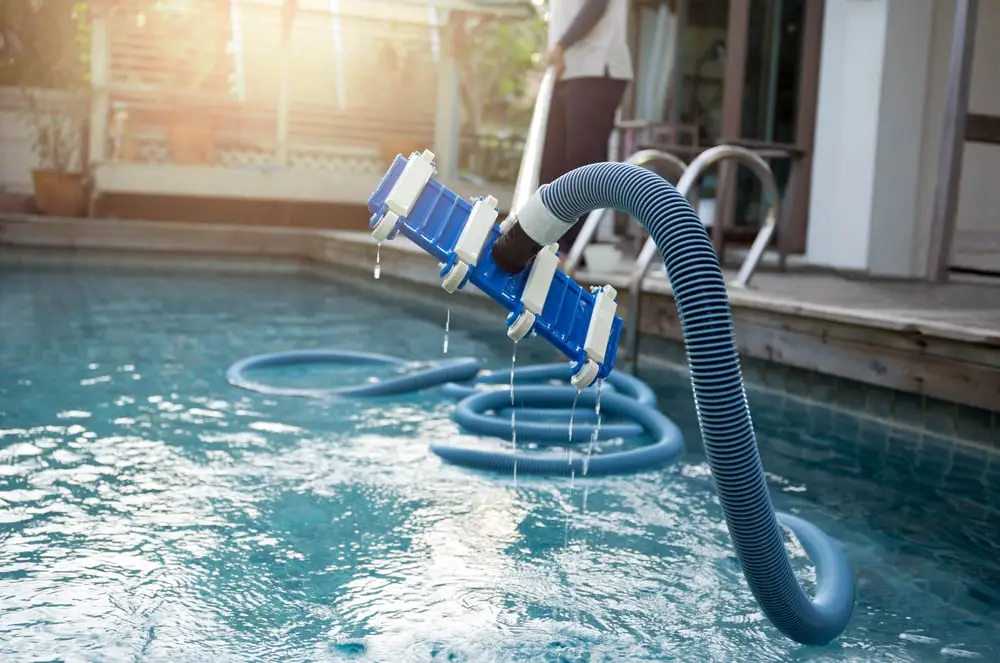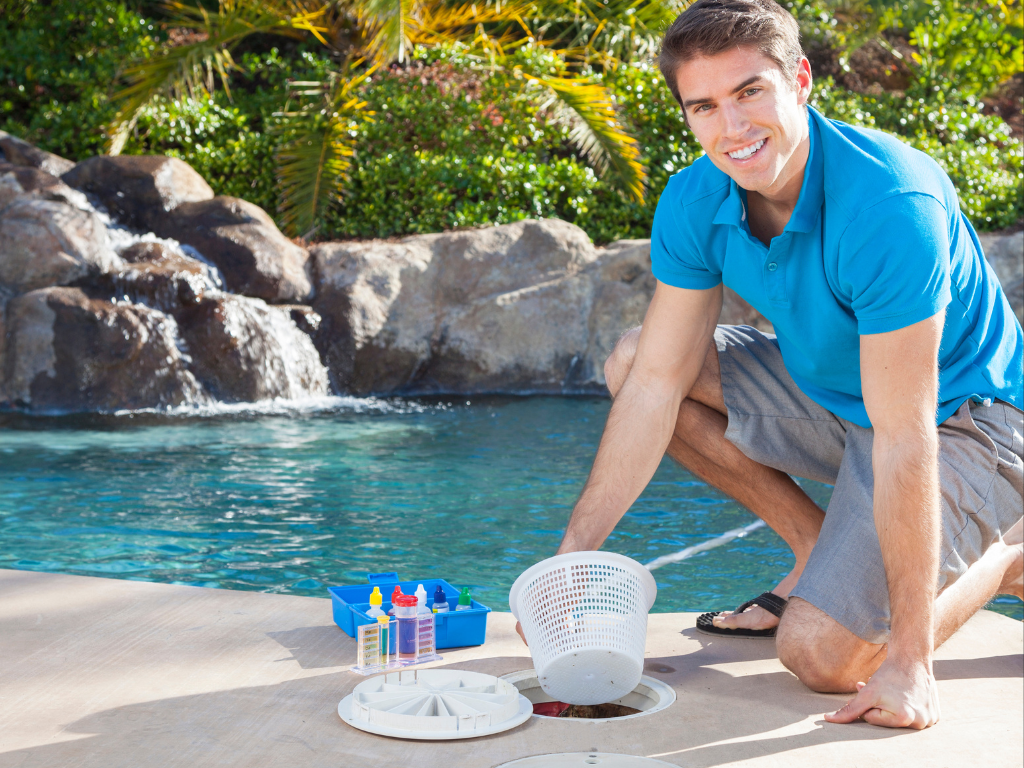Summer Pool Care
by Admin
Posted on 04-02-2025 02:49 PM

Pre-Summer Preparation
Before the summer season begins, it's essential to prepare your pool for the increased usage. This includes inspecting the pool and its equipment, such as the pumps, filters, and heaters, to ensure they are in good working condition. It's also crucial to check the pool's chemical levels, including the pH, alkalinity, and chlorine levels, to ensure they are within the recommended ranges. Additionally, cleaning the pool and its surroundings, including the deck and furniture, will help prevent the growth of bacteria and algae.
Regular Maintenance
Regular maintenance is critical to keeping your pool clean and safe during the summer months. This includes daily, weekly, and monthly tasks. Daily tasks include skimming the pool surface to remove floating debris, brushing the pool walls and floor to prevent algae growth, and checking the pool's chemical levels. Weekly tasks include vacuuming the pool floor, cleaning the pool filters, and testing the pool water for bacteria and other contaminants. Monthly tasks include inspecting the pool equipment, cleaning the pool heater, and performing a thorough cleaning of the pool and its surroundings.
Daily Tasks
Daily tasks are essential to maintaining a clean and safe pool. Skimming the pool surface should be done daily to remove floating debris, such as leaves and insects. Brushing the pool walls and floor should also be done daily to prevent algae growth. Additionally, checking the pool's chemical levels, including the pH, alkalinity, and chlorine levels, should be done daily to ensure they are within the recommended ranges.
Weekly Tasks
Weekly tasks are also crucial to maintaining a clean and safe pool. Vacuuming the pool floor should be done weekly to remove dirt and debris that can accumulate on the pool floor. Cleaning the pool filters should also be done weekly to ensure they are working efficiently and effectively. Testing the pool water for bacteria and other contaminants should also be done weekly to ensure the pool water is safe for swimming.
Chemical Levels
Maintaining the proper chemical levels in your pool is critical to ensuring a safe and healthy swimming environment. The pH level should be between 7.2 and 7.8, while the alkalinity level should be between 80 and 120 ppm. The chlorine level should be between 1 and 3 ppm. It's essential to test the pool water regularly to ensure these levels are within the recommended ranges. Additionally, adjusting the chemical levels as needed will help prevent the growth of bacteria and algae.
Importance of pH Levels
The pH level is critical to maintaining a safe and healthy swimming environment. If the pH level is too high or too low, it can cause eye irritation, skin irritation, and respiratory problems. Additionally, if the pH level is not within the recommended range, it can affect the effectiveness of the chlorine and other sanitizers.
Importance of Chlorine Levels
The chlorine level is also critical to maintaining a safe and healthy swimming environment. Chlorine helps to kill bacteria and other contaminants that can cause illness and infection. If the chlorine level is too low, it can allow bacteria and other contaminants to grow, while if it's too high, it can cause eye irritation, skin irritation, and respiratory problems.
Pool Safety
Pool safety is a top priority during the summer months. It's essential to ensure that the pool area is safe and secure, especially for children and pets. This includes installing a fence around the pool, using pool alarms, and supervising children and pets when they are in or around the pool. Additionally, having a first aid kit and emergency phone nearby can help in case of an accident.
Common Pool Problems
Despite regular maintenance and proper chemical levels, common pool problems can still occur. These include algae growth, cloudy water, and equipment failure. Algae growth can be caused by high pH levels, low chlorine levels, or poor circulation. Cloudy water can be caused by high levels of dirt and debris, poor filtration, or inadequate chemical levels. Equipment failure can be caused by poor maintenance, wear and tear, or manufacturer defects. For professional assistance in resolving these issues, consider hiring a reliable Folsom pool service to ensure your pool remains safe and clean.
Algae Growth
Algae growth is a common problem that can occur in pools. It can be caused by high pH levels, low chlorine levels, or poor circulation. To prevent algae growth, it's essential to maintain proper chemical levels, brush the pool walls and floor regularly, and ensure good circulation. If algae growth does occur, it's essential to treat the pool with algaecide and increase the chlorine level.
Cloudy Water
Cloudy water is another common problem that can occur in pools. It can be caused by high levels of dirt and debris, poor filtration, or inadequate chemical levels. To prevent cloudy water, it's essential to maintain proper chemical levels, vacuum the pool floor regularly, and ensure good filtration. If cloudy water does occur, it's essential to shock the pool and increase the filtration rate.
Conclusion
Summer pool care is critical to ensuring a safe and healthy swimming environment. Regular maintenance, proper chemical levels, and pool safety are all essential to maintaining a clean and safe pool. By following the tips and guidelines outlined in this article, pool owners can enjoy a fun and relaxing summer swimming season.
FAQs
What is the recommended pH level for a pool?
The recommended pH level for a pool is between 7.2 and 7.8.
How often should I test the pool water for bacteria and other contaminants?
The pool water should be tested for bacteria and other contaminants at least once a week.
What is the recommended chlorine level for a pool?
The recommended chlorine level for a pool is between 1 and 3 ppm.
How can I prevent algae growth in my pool?
To prevent algae growth, it's essential to maintain proper chemical levels, brush the pool walls and floor regularly, and ensure good circulation.
What should I do if I notice cloudy water in my pool?
If you notice cloudy water in your pool, it's essential to shock the pool and increase the filtration rate.
How can I ensure pool safety during the summer months?
To ensure pool safety, it's essential to install a fence around the pool, use pool alarms, and supervise children and pets when they are in or around the pool.
Good Vibes Pool Service
3450 Palmer Dr. #4-262
Cameron Park, CA 95682
(530) 883-0715
info@goodvibespoolservices.com
